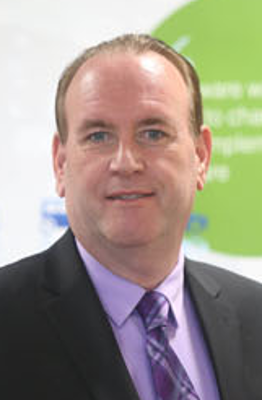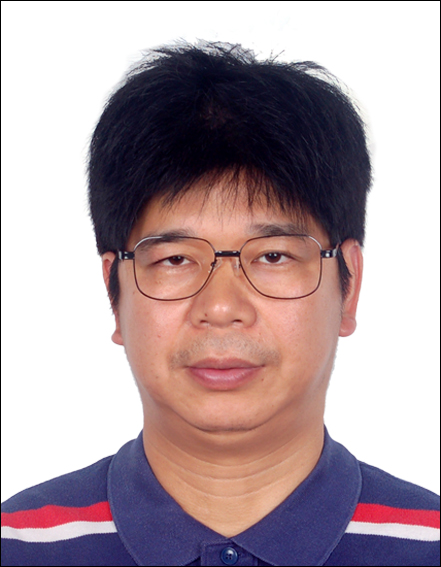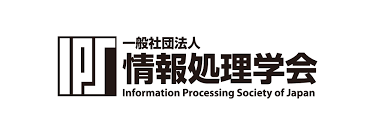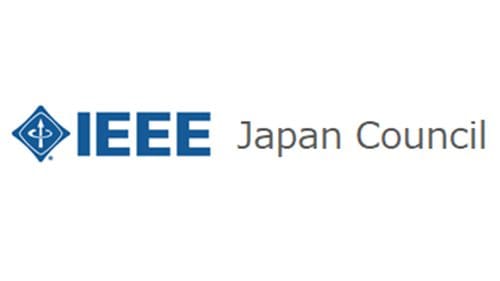Conference Organizing Committee
Steering Committee
David Basin, ETH Zurich, Switzerland
Michael Butler, University of Southampton, UK
Jin Song Dong, National University of Singapore, Singapore
Jifeng He, Shanghai Academy of AI Industrial Technology, China
Mike Hinchey, University of Limerick, Ireland
Shaoying Liu, Hiroshima University, Japan
Kazuhiro Ogata, JAIST, Japan
Shengchao Qin, Xidian University, China(Chair)
General Chair
Shaoying Liu, Hiroshima University, Japan
Program Chairs
Kazuhiro Ogata, JAIST, Japan
Meng Sun, Peking University, China
Dominique Méry, LORIA, Telecom Nancy, University of Lorraine, France
Financial Chair
Fumiko Nagoya, Nihon University, Japan
Publicity Chair
Yuting Chen, Shanghai Jiao Tong University, China
Yamine Ait-Ameur, IRIT-ENSEEIHT, Toulouse, France
Track-Organizing Chair
Weikai Miao, ECNU, China
Workshop/Tutorial Chair
Wuwei Shen, Western Michigan University, USA
Web Chair
Yuxiang Shang, Hiroshima University, Japan
Local Arrangement Chairs
Naoko Wakiya, Hiroshima Shudo University, Japan
Yanzhao Xia, Hiroshima University, Japan
Leadership Appreciation Chair
Shengchao Qin, Xidian University, China
Program Committee
Yamine Ait Ameur, IRIT/INPT-ENSEEIHT, France
Étienne André, Université de Lorraine, France
Cyrille Valentin Artho, KTH Royal Institute of Technology, Sweden
Guangdong Bai, The University of Queensland, Australia
Christel Baier, TU Dresden, Germany
Lei Bu, Nanjing University, China
Ana Cavalcanti, University of York, United Kingdom
Yean-Ru Chen, National Cheng Kung University, Taiwan
Yuting Chen, Shanghai Jiao Tong University, China
Zhenbang Chen, NUDT, China
Ranald Clouston, Australian National University, Australia
Florin Craciun, Babes-Bolyai University, Romania
Ana De Melo, University of São Paulo, Brazil
Canh Minh Do, JAIST, Japan
Thi Thu Ha Doan, Freiburg University, Germany
Naipeng Dong, National University of Singapore, Singapore
Aaron Dutle, NASA Langley Research Center, United States
Santiago Escobar, Universitat Politècnica de València, Spain
Flavio Ferrarotti, Software Competence Centre Hagenberg, Austria
Marc Frappier, Université de Sherbrooke, Canada
Daniel Gaina, Kyushu University, Japan
Lindsay Groves, Victoria University of Wellington, New Zealand
Osman Hassan, National University of Sciences & Technology, Pakistan
Xudong He, Florida International University, United States
Zhe Hou, Griffith University, Australia
Fuyuki Ishikawa, National Institute of Informatics, Japan
Eun-Young Kang, University of Southern Denmark, Denmark
Mark Lawford, McMaster University, Canada
Jiaying Li, Microsoft, China
Shang-Wei Lin, Nanyang Technological University, Singapore
Guanjun Liu, Tongji University, China
Si Liu, ETH Zurich, Swizerland
Zhiming Liu, Southwest University, China
Frederic Mallet, Universite Nice Sophia-Antipolis, France
Heiko Mantel, TU Darmstadt, Germany
Diego Marmsoler, University of Exeter, United Kingdom
Narciso Martí-Oliet, Universidad Complutense de Madrid, Spain
Stephan Merz, Inria Nancy, France
Rosemary Monahan, Maynooth University, Ireland
Shin Nakajima, National Institute of Informatics, Japan
Masaki Nakamura, Toyama Prefectural University, Japan
Peter Ölveczky, University of Oslo, Norway
Jun Pang, University of Luxembourg, Luxembourg
Yu Pei, The Hong Kong Polytechnic University, Hong Kong
Shengchao Qin, Xidian University, China
Silvio Ranise, University of Trento and Fondazione Bruno Kessler, Italy
Elvinia Riccobene, University of Milan, Italy
Adrian Riesco, Universidad Complutense de Madrid, Spain
Markus Roggenbach, Swansee University, UK
Subhajit Roy, Indian Institute of Technology Kanpur, India
Rubén Rubio, Universidad Complutense de Madrid, Spain
David Sanan, Singapore Institute of Technology, Singapore
Jing Sun, The University of Auckland, New Zealand
Sofiene Tahar, Concordia University, Canada
Maurice ter Beek, ISTI CNR PISA, Italy
Cong Tian, Xidian University, China
Duong Dinh Tran, JAIST, Japan
Elena Troubitsyna, KTH, Sweden
Tatsuhiro Tsuchiya, Osaka University, Japan
Ionut Tutu, Simion Stoilow Institute of Mathematics of the Romanian Academy, Romania
Bow-Yaw Wang, Academia Sinica, Taiwan
Hai H. Wang, University of Aston, United Kingdom
Tomoyuki Yokogawa, Okayama Prefectural University, Japan
Min Zhang, East China Normal University, China
Xiyue Zhang, University of Oxford, United Kingdom
Yongwang Zhao, Zhejiang University, China

















